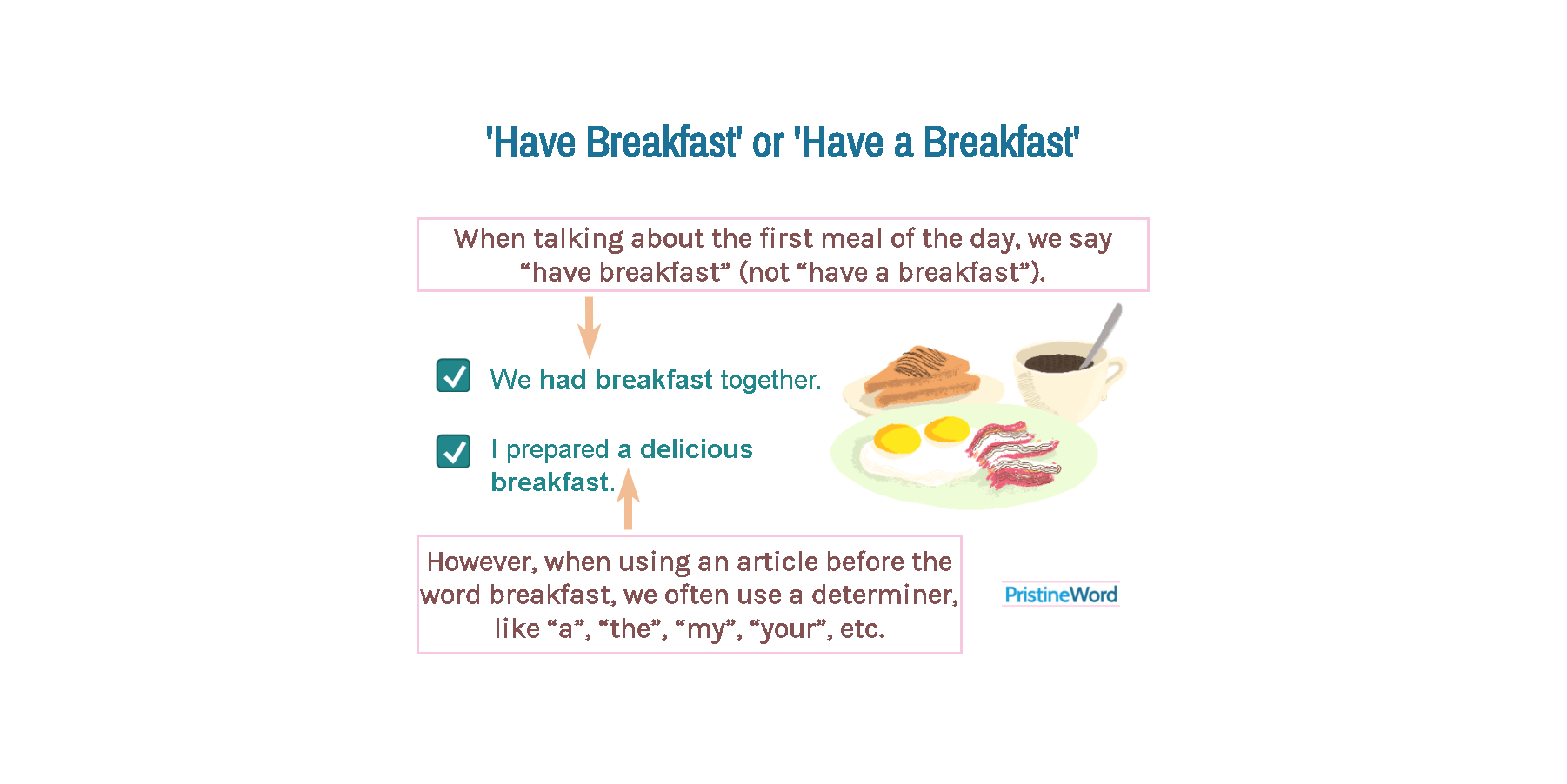When talking about the first meal of the day, we say “have breakfast” (not “have a breakfast”).
When talking about the first meal of the day, we say “have breakfast” (not “have a breakfast”).
We had breakfast together.
However, when adding an adjective before the word breakfast, we often need a determiner, like “a”, “the”, “my”, “your”, etc.
We had a healthy breakfast before leaving home.
Follow the same practice with other related expressions, such as “for breakfast”, “prepare breakfast”, “make breakfast”, “eat breakfast”, etc.
What do you want for breakfast?
1. When to Omit the Article
We do not normally put the articles “a” or “the” before the word breakfast to mention the first meal eaten in the morning.
She took a shower and had breakfast.
Can you come and have breakfast with us?
Follow the same strategy with other related expressions, such as “for breakfast”, “prepare breakfast”, “eat breakfast”, “cook breakfast”, “make breakfast”, etc.
We had scrambled eggs for breakfast.
My husband never eats breakfast.
I made breakfast for my family.
2. When to Add a Determiner Before ‘Breakfast’
When using an adjective in front of the word breakfast, we need to include a determiner (typically the article “a”) to identify or quantify the noun.
After a large breakfast, I went to work.
I feel like having a cooked breakfast today.
Avoid using determiners, however, to introduce the word breakfast in a general sense.
American breakfasts typically include bacon, eggs, and coffee.
We often put the article “the” to highlight or emphasize the food we ate during the meal.
The room of the hotel was not great, but the breakfast was fantastic.
In general, use a determiner to identify compound nouns that include the word breakfast.
I had a breakfast meeting with the marketing manager.
I already put the breakfast dishes in the dishwasher.

